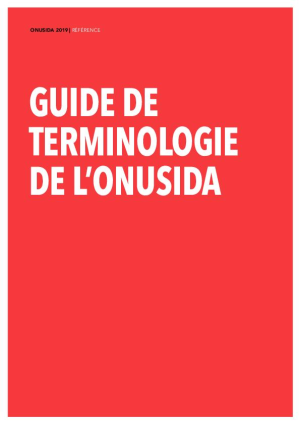Guide de terminologie de l’ONUSIDA – 2019
Le langage donne forme aux concepts et peut influencer les comportements. L’emploi réfléchi d’un langage approprié est de nature à renforcer la riposte mondiale à l'épidémie de sida. Le Programme commun des Nations Unies sur le VIH/sida (ONUSIDA) a le plaisir de mettre ce guide de la terminologie à privilégier à la libre disposition des membres de son personnel, de leurs collègues et des autres partenaires de la riposte mondiale au VIH.
Amicus Curiae brief of Lambda Legal Defense and Education Fund, Inc., Community AIDS Resource and Education Services, Michigan Positive Action Coalition, and Michigan Protection and Advocacy Service Inc.
Urges court to drop a bioterrorism charge against an HIV positive man who bit his neighbour during an argument, explaining the facts about HIV transmission risk. The bioterrorism charges were dropped.


